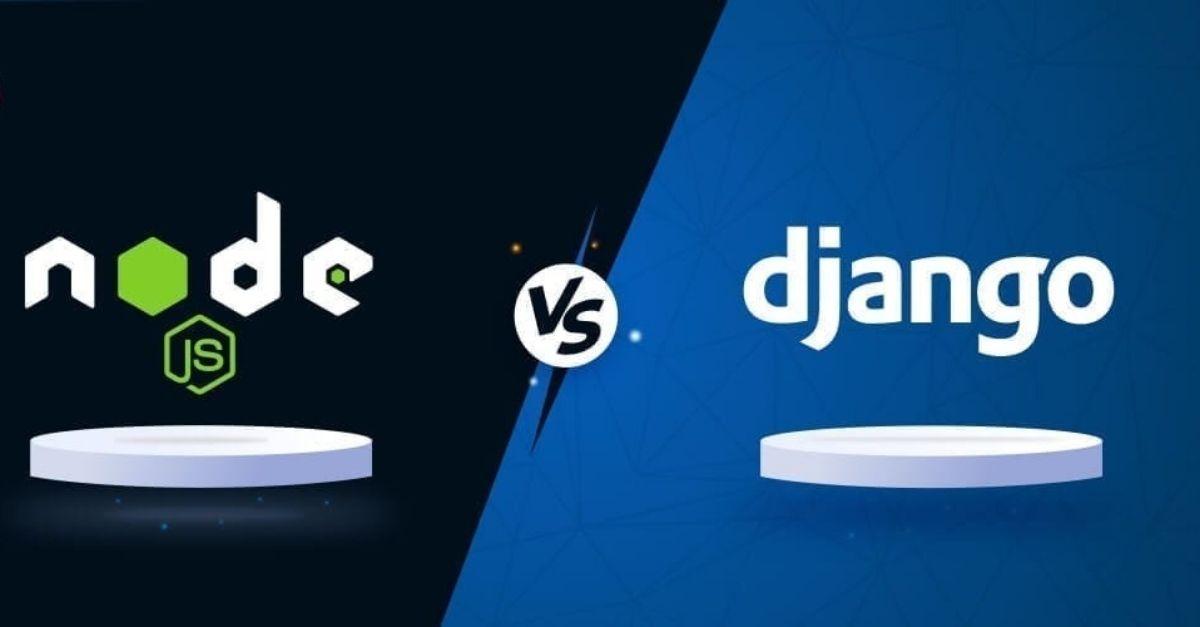When it comes to web development, choosing the right technology stack is paramount. Two popular options that often find themselves in the spotlight are Django and Node.js. While both are capable frameworks, they have distinct characteristics that cater to different project needs. In this blog, we’ll delve into the features, advantages, and use cases of Django and Node.js to help you make an informed decision.
Django: Rapid Development with Python
Django, a high-level Python web framework, has gained immense popularity for its “batteries-included” philosophy. Here’s what sets Django apart:
Features:
Full-Stack Framework: Django provides a comprehensive toolkit that covers everything from URL routing and database modeling to template rendering and authentication.
ORM and Database Support: Django’s Object-Relational Mapping (ORM) simplifies database interactions, supporting various database backends like PostgreSQL, MySQL, and SQLite.
Security and Authentication: Django comes equipped with robust security features and authentication mechanisms, making it easier to build secure applications.
Advantages:
Rapid Development: Django’s built-in functionalities accelerate development by minimizing the need to write boilerplate code.
Community and Documentation: The Django community is vibrant, offering extensive documentation and a range of packages to extend functionality.
Scalability: While Django is suitable for various project sizes, it particularly shines in complex applications where its modular structure and scalability features prove beneficial.
Use Cases:
Django is ideal for projects requiring quick development and where Python’s simplicity and elegance are valued. It’s commonly used for content management systems, e-commerce platforms, and data-driven applications.
Node.js: Scalability and Real-Time Capabilities
Node.js, on the other hand, is known for its asynchronous and event-driven architecture, making it an excellent choice for real-time applications. Here’s a closer look:
Features:
Non-Blocking I/O: Node.js leverages non-blocking I/O operations, allowing it to efficiently handle concurrent connections and real-time applications.
Package Manager: Node.js boasts a rich ecosystem of packages through npm (Node Package Manager), making it easy to find and integrate third-party libraries.
Real-Time Web Applications: Due to its event-driven nature, Node.js is exceptionally well-suited for building real-time applications like chat applications, online gaming platforms, and collaborative tools.
Advantages:
Scalability: Node.js is designed to handle a large number of concurrent connections, making it a preferred choice for applications requiring high scalability.
Speed and Performance: Node.js’s lightweight nature and event-driven architecture result in excellent performance, especially for I/O-intensive applications.
JavaScript Everywhere: If your team is already proficient in JavaScript, using Node.js for backend development can result in a seamless full-stack experience.
Use Cases:
Node.js shines in projects demanding real-time interactions and scalable performance. Applications like social networking platforms, streaming services, and online gaming backends benefit from its event-driven capabilities.
Conclusion: Choosing the Right Fit
When we create an app for iPhone and Android in the Django or Node.js debate, there’s no one-size-fits-all answer. Your choice depends on the nature of your project, the skills of your development team, and your performance requirements. Django excels in rapid development scenarios and content-heavy applications, while Node.js shines in real-time applications and situations requiring high concurrency. The decision becomes even more critical when aiming to create an app that offers a seamless experience across both iPhone and Android platforms.
Ultimately, the best decision is an informed one. Consider your project’s demands, evaluate the strengths of each framework, and choose the one that aligns best with your goals. Whether you opt for Django’s elegance or Node.js’s real-time prowess, both frameworks have proven their worth in the world of web development.




